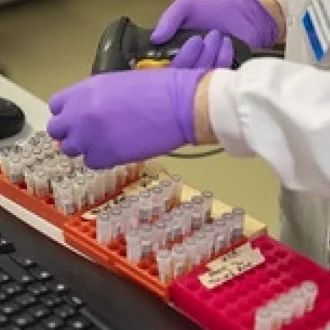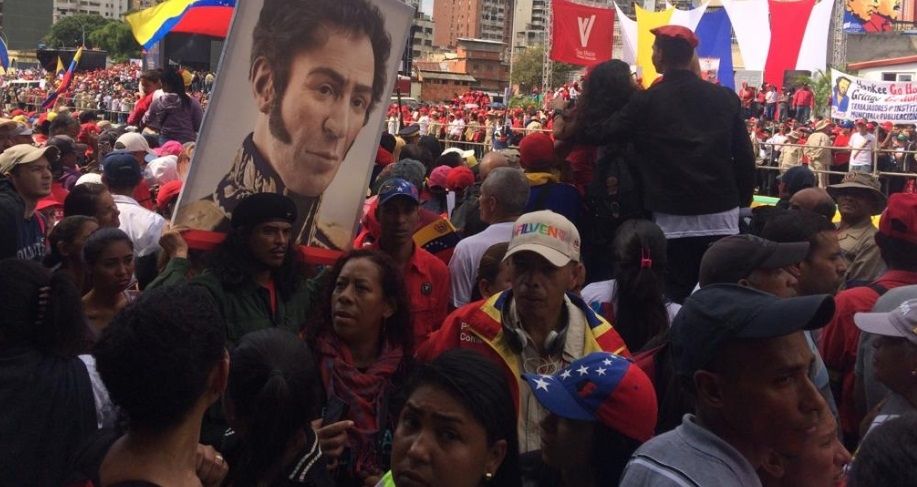Franz Neuhold is a member of Sozialistische LinksPartei (ISA in Austria).
Global Crisis Response
There are currently many comparisons being drawn between South Korea’s response to the first wave of the COVID-19 crisis and that of other countries, leading to a devastating indictment of the role of global leaders and capitalist governments throughout the world.
Almost no government has reacted in time, and with a clearly focused strategy for managing the COVID-19 crisis. Only a few – South Korea, Taiwan and Singapore – appears to have acted promptly. The rest were very late in acting to deal with a clearly critical situation. In fact, the warning signs have been clear to see for at least seven years!
Warning signs have been clear for years!
The German government’s bio-medicine research centre, the Robert Koch Institute in cooperation with other federal agencies, conducted a risk analysis of the potential pandemic scenario using a modified SARS virus with assumed properties, some close to those found in the current pandemic. This was published and incorporated in a report to the German Bundestag (parliament) in early 2013 but has since been ignored both in Germany and internationally.
Now experts in both Europe and the Americas are discussing the way forward, examining what Asian countries from China to South Korea did and are doing to contain or suppress the development of the epidemic. At stake are not just the health implications, but also economic and social stability, and democratic rights. While tough state action may be temporarily needed to suppress the spread of the virus, their use raises serious questions of how democracy can be assured and the need to avoid authoritarian tendencies. A huge warning can be seen in Hungary, where the government has handed sweeping personal powers to the right wing Premier Viktor Orban.
So how has South Korea managed to suppress the first wave of the epidemic? Since the SARS related MERS outbreak in 2015, the country has conducted civil protection exercises, and from the start of the COVID-19 epidemic, it has carried out mass testing, tracing and case isolation. So far, it has to be stressed, there have been no lockdowns in South Korea.
This position is a result not of any foresight and pre-planning that would be expected from a socialist workers’ government, but because the South Korean government was forced by circumstances to take a lot of correct measures, starting with long-term preparation. The political managers of South Korean capitalism did this, not because they had a better understanding than their counterparts of any cost-benefit calculations but because of the special position the country found itself in. In fact, a main feature of modern global society is that no stable island of capitalist reason can exist because of the global division of labour, trade and imperialist relations. That the South Korean government was forced to act by circumstances expose how useless the capitalist elites in general are for the working class and society as a whole.
Why South Korea’s testing is an exception?
The 2015 outbreak of the SARS-related MERS-virus, itself a coronavirus, posed a severe and obvious threat to capitalist society on the Korean Peninsula. Following it, decisions were made to develop a civil protection plan and prepare for further epidemics in the future. A procedure was installed which led to faster tests, higher capacities for the development of tests for new viruses and the speeding up of their approval-procedure. In total, 47 drive-through-stations were built, where tests are offered at no charge. According to ‘Worldometers’, which monitors global statistics, South Korea had 5,200 tests per million inhabitants when the US was at a meagre 74.
Wide-scale testing allows for the development of a map of infections with a good overview of clusters, which is critical if the crisis is to be managed effectively. As importantly, preparations were made and the necessary capacities were built before the outbreak. In addition, civil protection exercises and information campaigns were launched to raise the level of awareness about the danger. As early as December 2019, a big civil protection exercise was held. Of course, such an exercise, which means a day away from work, affects companies’ profits. However, the government deemed this acceptable in return for the later payback.
South Korea initiated mass testing from Day One, not waiting until it was out of control. The tested anyone with symptoms and they traced anyone who may have come into contact with a person with symptoms. The test results allowed the country to identify those infected and then track possible spread. The main reason COVID-19 spread was Patient 31 who attended two services at the huge Shincheonji church in Daegu. Knowledge is vital to track the spread of COVID and then to act. The first indentified case in South Korea was on January 20, in the US it was on January 21 and Canada on January 27. What a contrast in response and outcome!
The higher level of awareness in large parts of the population is certainly a factor, as it increases confidence in the dependability of actions being taken, especially amongst trained professionals. According to an article on www.sciencemag.org from March 17th, “Oh Myoung-Don, infectious disease specialist at Seoul National University, says, ‘The MERS experience certainly helped us to improve hospital infection prevention and control.’ So far, there are no reports of infections of COVID-19 among South Korean health care workers.” As a result, it was later sufficient for the government to just call for physical distancing. The population, to a large degree cooperated, not needing to be coerced. In fact, the example of South Korea does not support any of the arguments of those who have jumped on the band-wagon of lockdowns and need for “bold leaders”.
Actually, Oh Myoung-Don’s claim that there are no reports of infection amongst health care workers was premature. According to South Korea’s Center for Disease Control and Prevention, by the end of March in the city of Daegu alone, 121 healthcare workers had been confirmed with the virus, although over a third of these had been connected to the Shincheonji religious sect, whose irresponsible actions have led to the infection of over 5,000 people. At the same time medical staff face the same problems as their colleagues in other countries – after years of financial cutbacks a shortage of staff, leading to a severe overload on those working, leading to stress and burn-out. According to Kim Tae Hyong, an infectious disease expert from Soonchunhyung University, health worker shortages are “a chronic problem that has existed since before the virus, and was unfortunately left unremedied until a crisis hit.”
Why have almost all other capitalist governments?
While South Korea did react to the MERS crisis in 2015, imperialist super-powers, including Germany chose not to, even ignoring the risk scenario mapped out for them by the Robert Koch Institute.
The potential to conduct wide-scale testing and for the virological/scientific adaption of tests to deal with a new virus exists in many countries. The main limitations to research and testing capacities are market forces and capitalist national egoism. This is also the case at other levels, including vaccine-research and protective gear. Any government that tells us there is not enough testing capability is lying. The truth is, they haven’t done the right things to make it available. Governments knew about the potential for a pandemic to develop in January, and yet are only now trying to resource tests and equipment.
By sticking to the principle of market regulation there is, of course, no chance of dealing effectively with a crisis of such proportions. This is already recognised by several governments who are taking piecemeal measures to order companies to change production lines, and even taking some into public ownership. But piecemeal measures are too little, too late. Any degree of profit-driven decision making during such a pandemic is undermining any rapid response and collective preparations.
International cooperation, based on the planning of all economies, is needed to prepare for, and act during epidemic/pandemic challenges. This requires the maximum involvement in decision making of working people that run society on the ground, the cooperation of health services and potential patients, and the transparent and publically owned conduct of scientific research. Emergency and radical changes in legislation concerning patents and scientific research are needed, so they no longer protect the profits of the pharmaceutical industry, but enable them to be used for the benefit of all mankind. Never before has the need for genuine workers’ governments been so apparent.
Such an approach demonstrates that today’s draconic measures such as lockdowns are caused by the fact that governments are clueless and to blame for gross mismanagement. Like a drunken driver they grip the steering wheel tightly, trying to convey the superficial impression that they are in control.
Democratic, civil rights and data protection?
Of course, there are other important questions arising from South Korea’s strategy, especially regarding democracy, civil rights and data protection. The highly problematic use of face recognition and movement tracking is alarming many people. In other countries such as China and Russia, these methods are widely used for political control. Such technology cannot be neutral.
Under capitalism there is always a real danger that modern technology is used to undermine democratic and civil rights. If the use of methods such as face recognition or mobile phone data in contact tracing are indispensable in fighting the pandemic, then question of who controls the data and how it is protected from abuse is of paramount importance. Here the working class as an independent force and potential revolutionary subject comes into play. Ideally, democratically elected committees dominated by the working class must control their use. If the bourgeois state apparatus or far-right forces try to control them, opposition need to be organised.
Defending a democratic struggle against COVID-19
Socialists do not simply defend democracy in a rigid way, as if forms of bourgeois democracy are the final answer to everything. But in a crisis such as this, it is the capitalists themselves who rush to remove democratic controls, at the very time when workers’ control, even under capitalist conditions would be the most effective way of handling the crisis. The methods of widespread testing and contact tracing would then be of huge importance in any first, or second wave response.
We Say:
- Door-to-door testing free to all and drive-in-stations
- The immediate provision of protective equipment for all health care and other essential workers
- Employment protection on full pay for anyone in isolation
- Disinfectants and mask, if necessary, provided free for everyone in all public places
- These measures should be preceded and accompanied by extensive communication about the necessity and usefulness of such measures with the widespread involvement of the trade unions, health organisations and other bodies such as the Red Crescent and Red Cross
- Tracing and tracking strategies must be implemented transparently and under democratic control, by a board with elected members from trade unions and health organisations. All data must be anonymized




